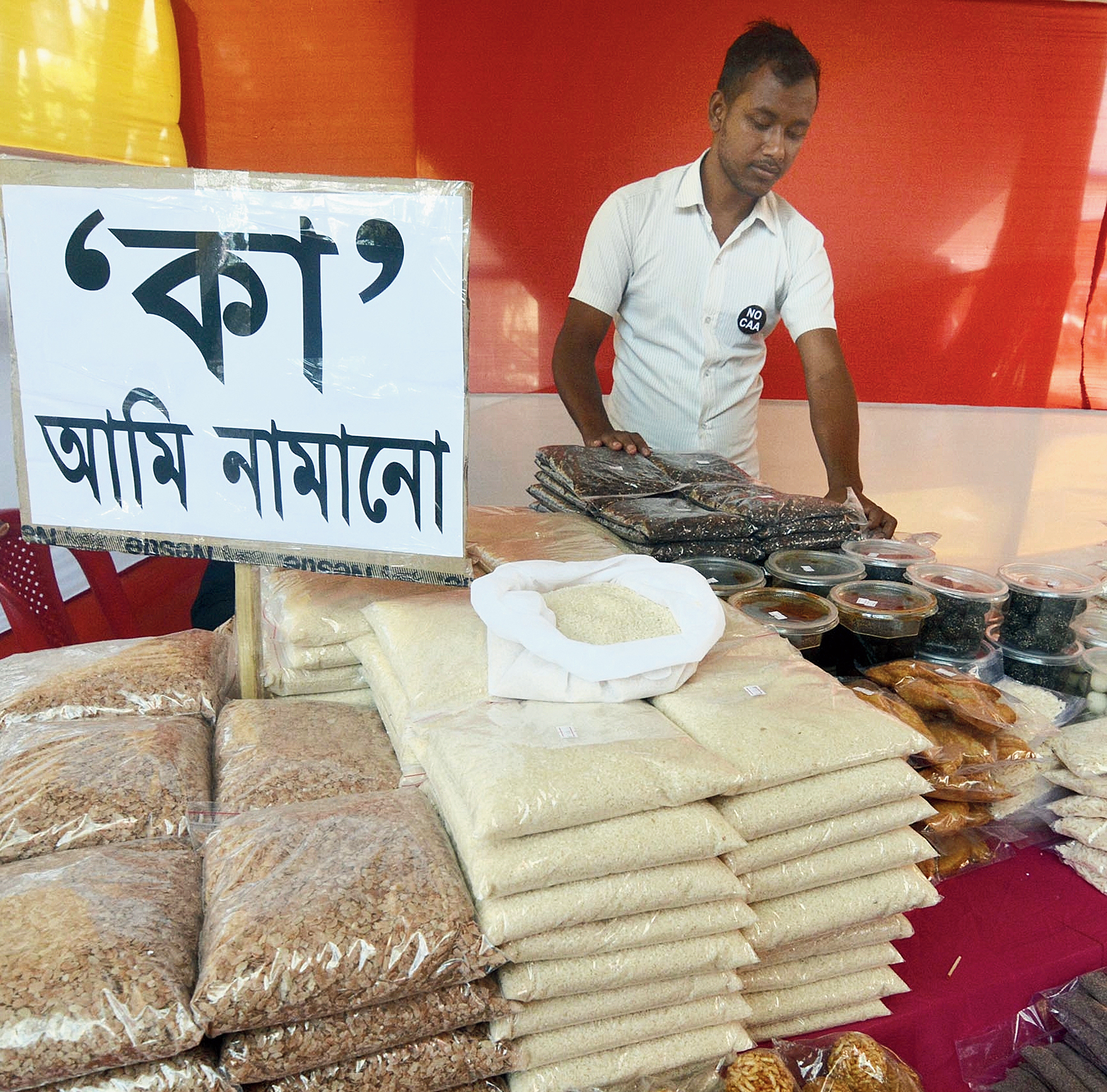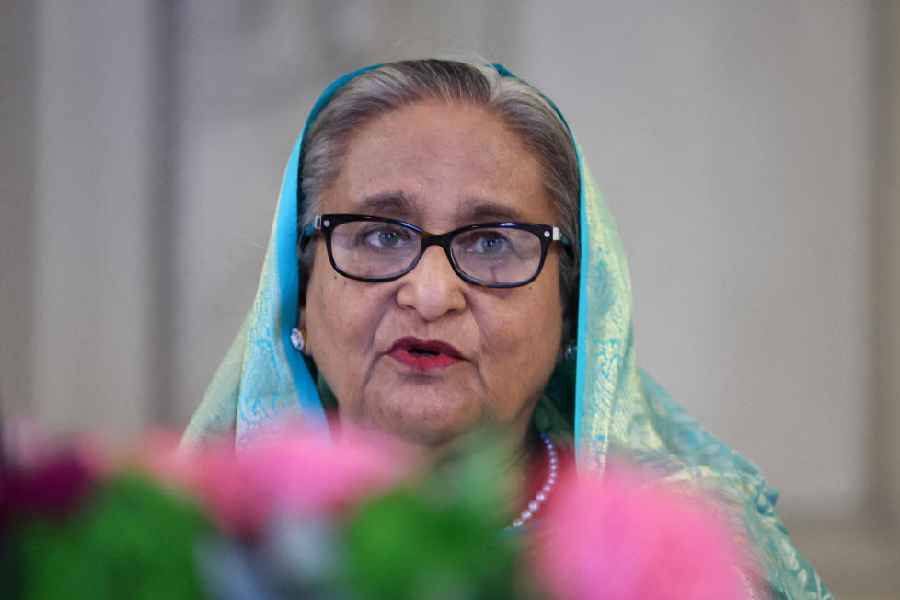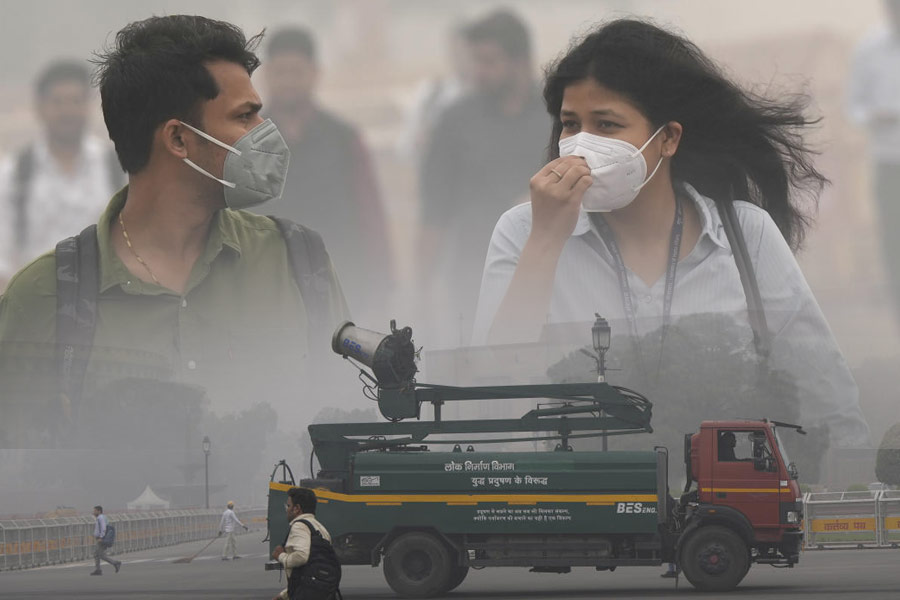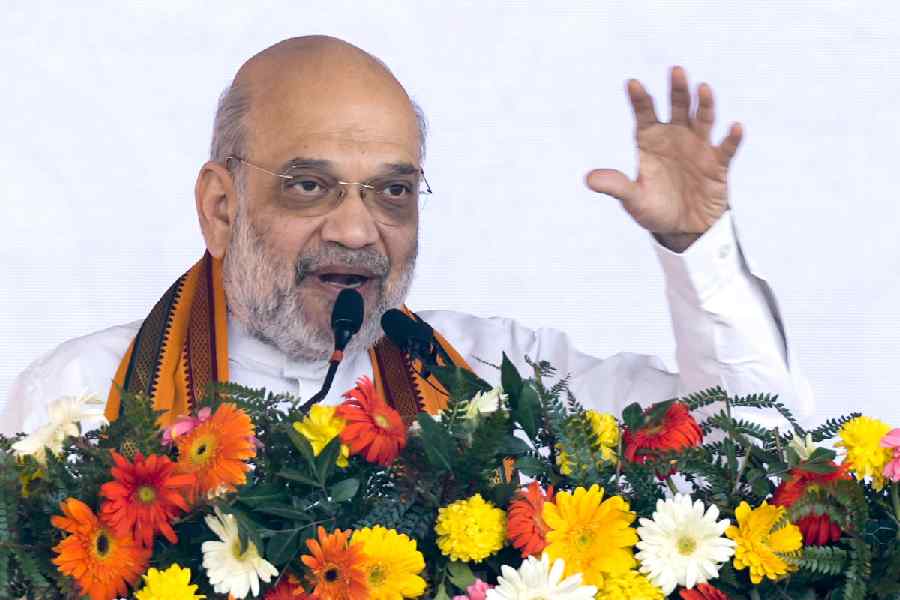The reflection of the anti-Citizenship Amendment Act movement will be seen in bhelaghars, temporary sheds made to prepare feast on the last day of the Assamese month of Puh.
All Assam Students’ Union (AASU) had urged people to celebrate the festival by burning copies of the Citizenship Amendment Act on uruka on January 14, the eve of Magh Bihu when people get together for community feast.
The celebrations will be low key this year owing to the widespread protests against the Act. “This time, the celebrations will be a little less as the protests against the CAA are on. On the Bihu day, the first day of the Assamese month of Magh, we will burn the dummy copies of the Act,” said Biren Deka, 45, a businessman from Nagaon.
The harvest festival, otherwise, is celebrated with much fanfare and feast across Assam. On the Bihu day morning, people burn the meji, a traditional structure made of bamboo and straw and offer prayer for peace and well-being.
The festival will be celebrated in a similar fashion in Upper Assam’s Tinsukia, Sivasagar, Dhemaji, Jorhat, Golaghat and Biswanath districts as protests would mark the celebrations.
“The anti-CAA sentiment is poised to be at the centre stage in Bhogali Bihu this year. We will burn the Act’s copies in the fire of uruka,” said a resident of Dhola gaon in Tinsukia. “Since we pray for destruction of the evil forces and well being of all while burning the meji, burning the Act’s dummy copies is important as it is evil for us and the state,” said Sanjay Chetia, a teacher from Sivasagar.
Though people will follow the traditional rituals, the known zeal and zest for the festival will be missing this year. Not many bhelaghars were built in the urban parts of Upper Assam.
“Continuing the protest against the CAA is the priority, though people will perform the traditional rituals, customs and conventions,” Chetia added.
Assam witnessed similar scenes during Bhogali Bihu last year when people burnt the copies of the Citizenship (Amendment) Bill. Many also launched hunger strikes.











